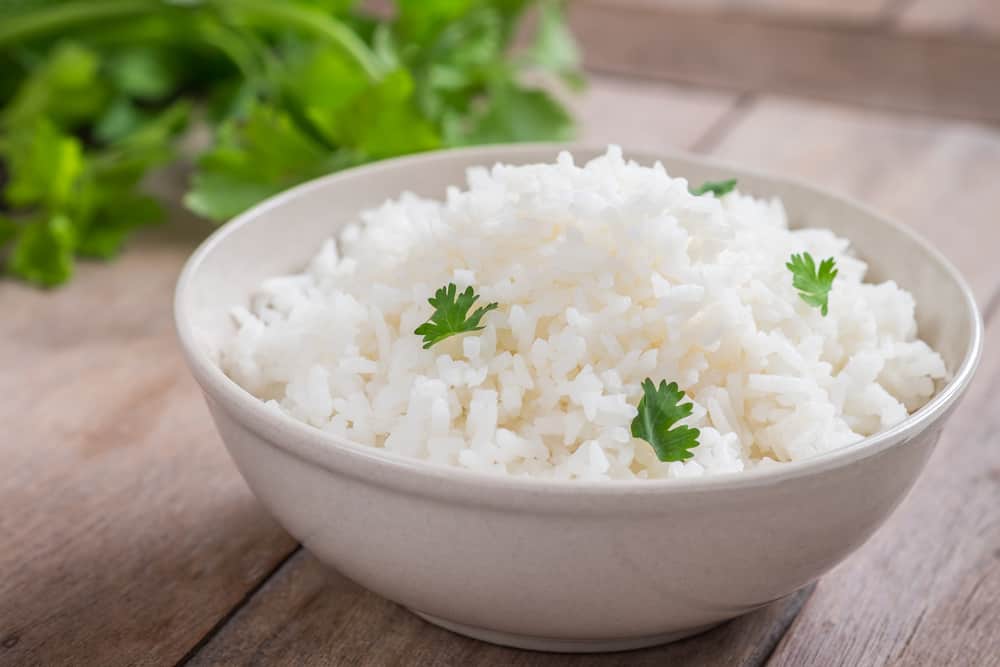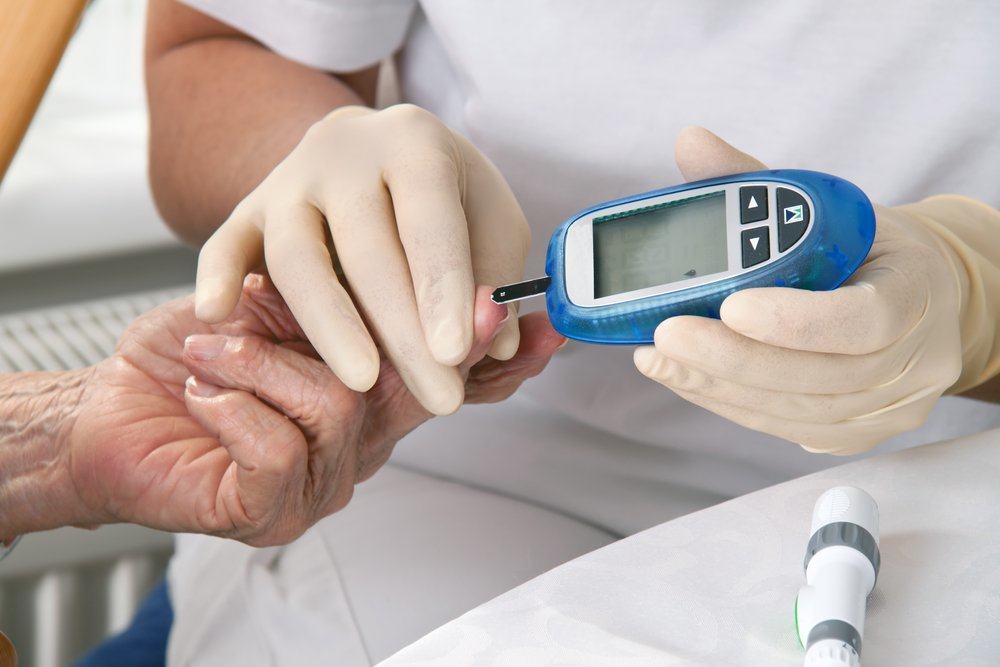Contents:
Medical Video: The 10 Best Foods To Boost Brain Power and Improve Memory
The human brain is a strong organic machine. The brain controls all thoughts, movements, and sensations, while also estimating and reacting at the speed of light. The brain also functions as a storage cabinet for image, text, and concept data in an amount that is not playing much. The brain also functions as a regulator of thousands of complex functions, usually without having to tell the owner of the body about the exact details, such as regulating circadian rhythms, hormonal balance, breathing, subconscious activity, and blood flow. This means the brain continues to work without stopping - even when we sleep.
Why do we need special food for the brain?
- The brain is the most greedy body organ of energy. Weighing only two percent of our total body weight, the brain can eat more than 20 percent of the total daily calorie intake. Then, half of the energy that enters the bioelectric message signal sent by the brain through neurons spreads throughout the body.
- What we eat will affect brain performance. We know that food can affect the body, but what we consume also affects our mood, brain energy, memory, and even our body's natural ability to deal with stress, difficult problems, or even just a simple task.
- The brain likes "picky food". This body drive machine only requires a constant supply of glucose, and doesn't really need anything else to work properly. But not carelessly glucose. Neurons do not store these simple sugars like other body cells, so they will always starve and always demand their needs. The brain may need a lot of sugar intake, but this does not mean we can carelessly eat junk food. Processed sugar, such as granulated sugar or fructose corn syrup, is not the best choice because if the blood glucose level is too high, this condition will damage cells throughout the body, including the brain, and actually make neurons more hungry.
So, what foods are good for brain health?
Enter this 'superfood' into your daily diet, and you can increase your chances of maintaining brain health throughout your life.
1. Avocados
Foods rich in vitamin E - including avocados, which are also high in antioxidant vitamin C - have been linked to a lower risk of developing Alzheimer's.
It is true that avocados are high-fat fruits, but the fat content in legit fruits is classified as monounsaturated fats, which contribute to healthy blood circulation. Healthy blood flow means a healthy brain.
Hypertension is a risk factor for a decrease in the quality of cognitive abilities. Avocados can reduce blood pressure. That is, lower blood pressure will improve overall brain health.
Keep in mind, the calories in avocados are high. It's best to limit your avocado consumption to between one quarter and 1/2 for one meal a day.
Citrus fruits and brightly colored vegetables are also high sources of antioxidants that can help brain health. There is plenty of evidence to show that lycopene, a compound contained in tomatoes, can help protect the brain from cell damage due to free radicals that arise in the development of dementia, especially Alzheimer's.
2. Berry
Reporting from Health, research has found that blueberries, strawberries, and the acai berry can help stop cognitive abilities that decline due to age by maintaining a "clean up" mechanism of the brain, which can be worn out as we get older.
This "clean up" mechanism helps get rid of toxic proteins and free radicals associated with memory loss from old age, and protects neurons from damage.
The evidence gathered from Tuft University, quoted from WebMD, shows that consumption of berries, especially blueberries, can be effective in improving or delaying momentary memory loss. Blueberries also help protect the brain from oxidative stress and can reduce the effects of other age-related cognitive conditions, such as Alzheimer's and dementia.
In addition, also consume other fruits and vegetables that are dark red or purple (plums, pomegranates, beets, black currants, or purple cabbage), which contain the same protective compound called anthocyanins.
3. Fish
Salmon, tuna, mackerel, sardines, and other oily fish are high in omega-3 fatty acids which are good for overall heart and body health. What makes oily fish so good is that they contain the active form of this fat, EPA and DHA, in a ready-made form, which allows the body to use it easily.
Essential fatty acids cannot be produced naturally by the body, which means they must be obtained from food intake. This fat is important for brain health. DHA also has an important role in the sustainability of neuron function.
Low DHA levels have been linked to an increased risk of Alzheimer's and memory loss while having sufficient deposits of EPA and DHA is thought to help us better adapt to stress and produce chemicals in the brain that are associated with good moods, serotonin.
If you are a vegetarian, consider taking plant-based omega-3 supplements, as well as enough natural intake by adding chia seeds, flaxseed, soybeans, pumpkin seeds, walnuts, and oil - which are also high in vitamin E.
4. Dark green leafy vegetables
Kale, spinach, broccoli, and other dark green leafy vegetables are high food sources of vitamin E and folate.
For example, 225 grams of raw spinach has 15% of your daily vitamin E intake, and 100 grams of cooked spinach contains 25% of your daily intake.
Exactly how the function of folate as a protector of brain health is still unclear, but it might be achieved by lowering the level of amino acids, known as homocysteine, in the blood. High levels of homocysteine in the blood can trigger nerve cell death in the brain, but folic acid helps break down homocysteine concentrations. High homocysteine levels are also associated with an increased risk of heart disease.
Broccoli is rich in vitamin K, which is known to be effective in improving cognitive function and improving brain ability. Broccoli also contains high compounds of glucosinolates, which function to slow down damage to the neurotransmitter, acetylcholine, which is needed so that the central nervous system in the brain can work well and while maintaining sharp brain and memory health. Low levels of acetylcholine have been linked to Alzheimer's.
Ten percent of women suffer from iron deficit anemia, and studies show that even a mild stage of this condition can affect learning, memory and focus. Fortunately, restoring iron levels to normal limits will also reduce this problem.
5. Whole wheat (whole wheat)
The brain cannot work without energy. Its ability to focus and concentrate comes from a stable and sufficient glucose intake. Glucose can be obtained from whole wheat seeds with a low GI level. Complex carbohydrates from whole wheat will be digested very slowly by the body, which allows you to be able to stay alert and focused for hours.
Whole grains, such as oatmeal, whole wheat bread, wheat cereals, and brown rice can reduce the risk of heart disease. A healthy heart means that blood circulation is also good. Good cardiovascular health, which means you promote good blood intake to all organ systems, including the brain.
Besides being rich in fiber, whole grains are also high in vitamin E and omega-3.
Variations of a number of foods above can help you maintain brain health. However, do not forget that a healthy diet must be followed by regular exercise that can maintain a smooth supply of blood and oxygen into the brain. Research shows that regular exercise can improve cognitive function, slow down the mental aging process, and help us to be able to process information more effectively.
READ ALSO:
- 5 healthy foods for children's brain development
- Olive oil vs. palm oil, which one is better?
- Can pineapple make the vagina feel sweet?












